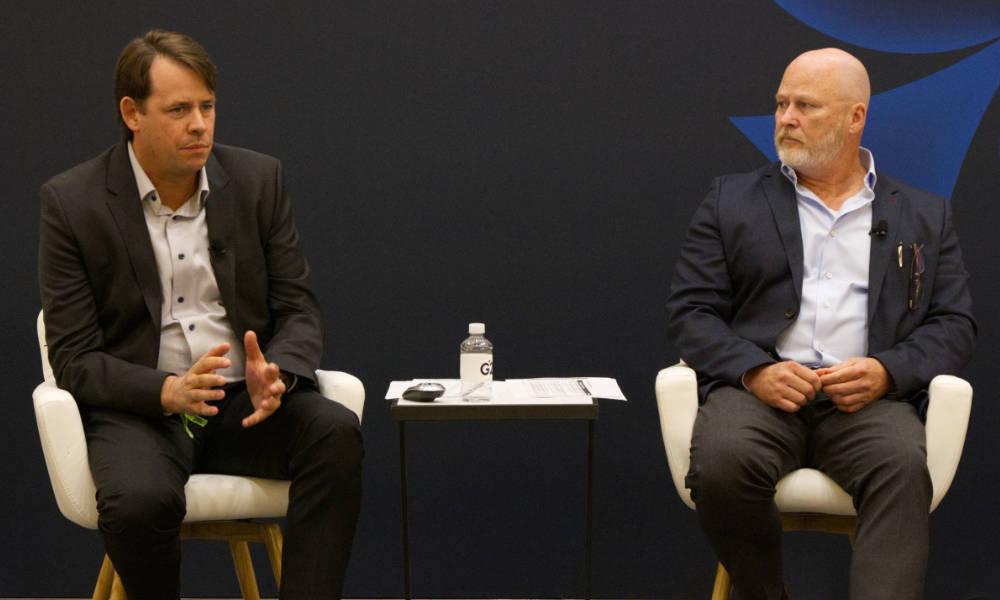Artificial intelligence is moving from theory to practice inside casinos, helping operators analyze player behavior, optimize marketing budgets, and predict operational needs. During a Monday morning session at G2E last week, industry leaders discussed how AI is being used to improve marketing return on investment and guest experience.
The session, moderated by Jacob Lanning, Commercial Strategy for Casino Systems at IGT, featured Jordan Salmon, Director of Planning and Analysis at Graton Resort & Casino, and Matt Sweetnam, Chief Architect of Data and Analytics at AHEAD.
Defining the opportunity
Sweetnam opened with a brief overview of AI’s evolution and its increasing practical use. “AI has been around since the 1960s,” he said. “What’s changed is the computing power that allows these models to analyze data and respond in real time.”
He explained that machine learning and neural networks are already built into many tools consumers use every day, such as recommendation engines on ecommerce and streaming platforms. In gaming, the same technology can identify behavioral trends and support real-time decision making on the casino floor.
“AI gives us the ability to analyze what is happening with guests in real time and offer meaningful insights,” Sweetnam said. “It’s not theoretical anymore.”
Salmon said the timing is right for casinos to use that capability. “Marketing reinvestment is one of the largest expenses on any property’s P&L,” he said. “If we can use AI to optimize those dollars and influence player behavior, that’s a direct impact on profitability.”
He shared an example from his own property. “If a player visits onlywhen there’s a concert and they use their free play offer during that visit, that offer isn’t motivating them. AI allows us to spot that pattern and adjust offers to encourage visits on other days. That’s where we start to see the return.”
Balancing automation and oversight
Both speakers emphasized that automation still requires human judgment. Sweetnam said the most effective systems use a “human-in-the-loop” approach, where staff members review AI recommendations and refine them before action is taken.
“Operators can validate and adjust what the model suggests,” he said. “That feedback then improves future outputs. It’s an ongoing process that builds accuracy and trust.”
Salmon added that casinos should approach implementation carefully. “It’s not a matter of turning it on and walking away,” he said. “We have to make sure it works for our guests, our team, and our regulators. The goal is improvement, not replacement.”
Beyond marketing
While most operators begin with marketing optimization, Sweetnam noted that AI’s applications extend across operations. Banking and healthcare, he said, offer proven examples that gaming can follow.
“Financial institutions already use large-scale fraud models. Healthcare uses AI to identify early diagnoses from patient data,” he said. “Casinos can apply those same principles to detect unusual play behavior or to forecast floor performance.”
Salmon said similar advances are possible for slot-floor management. “AI can highlight when to move or reconfigure a machine or when to adjust table limits,” he said. “It’s about improving both efficiency and the player experience.”
Data and measurement
The panel agreed that success depends on quality data. “More data is better only if it’s good data,” Sweetnam said. “Operators need a full picture — linking loyalty systems, food and beverage, and gaming activity into one view.”
He added that traditional key performance indicators still apply. “You can still measure performance with A/B testing and conversion tracking,” he said. “AI doesn’t replace those tools; it enhances them.”
Salmon said AI helps validate assumptions with real-world results. “Sometimes smaller offers outperform larger ones,” he said. “Data helps us understand behavior instead of relying on instinct.”
Preparing for what’s next
Looking ahead, Sweetnam said the real differentiator will be how fast organizations integrate AI into everyday operations. “AI won’t replace people, but people using AI will outperform those who don’t,” he said. “The early adopters will move ahead quickly.”
Salmon agreed, noting that AI could streamline day-to-day functions far beyond marketing. “Imagine AI predicting higher dining traffic on a Friday night, automatically sending purchase orders, and adjusting schedules,” he said. “That’s where this is headed.”
For casinos, the takeaway was simple: The tools are ready, the data already exists, and the first step is deciding how to use them.




